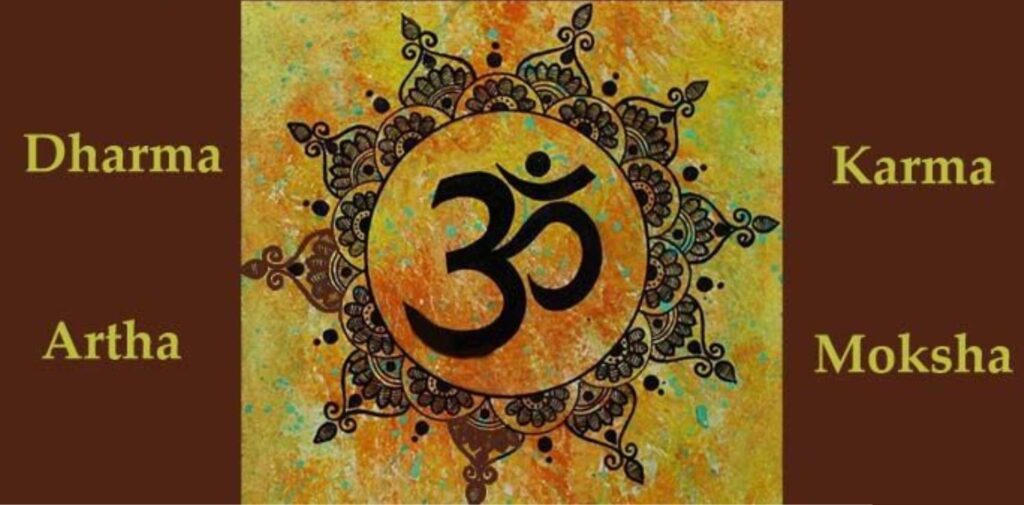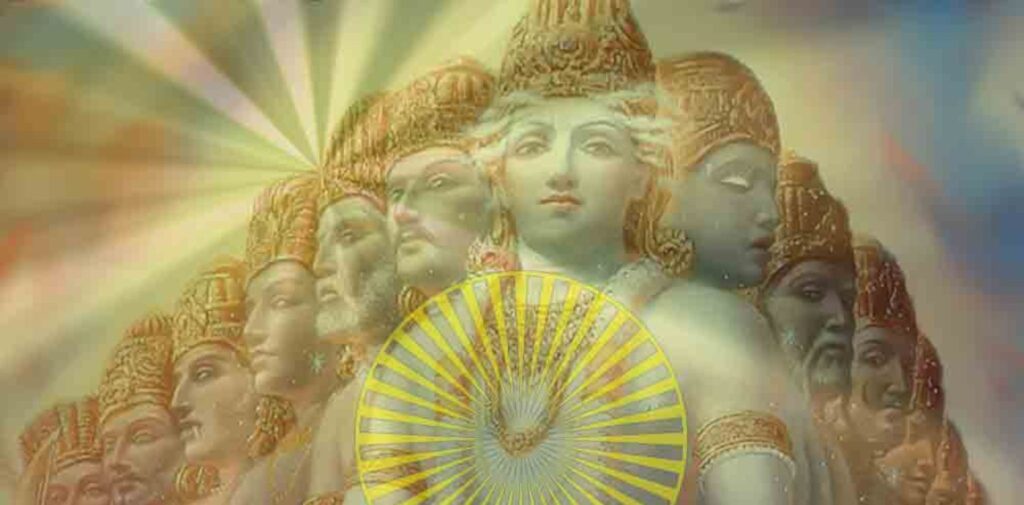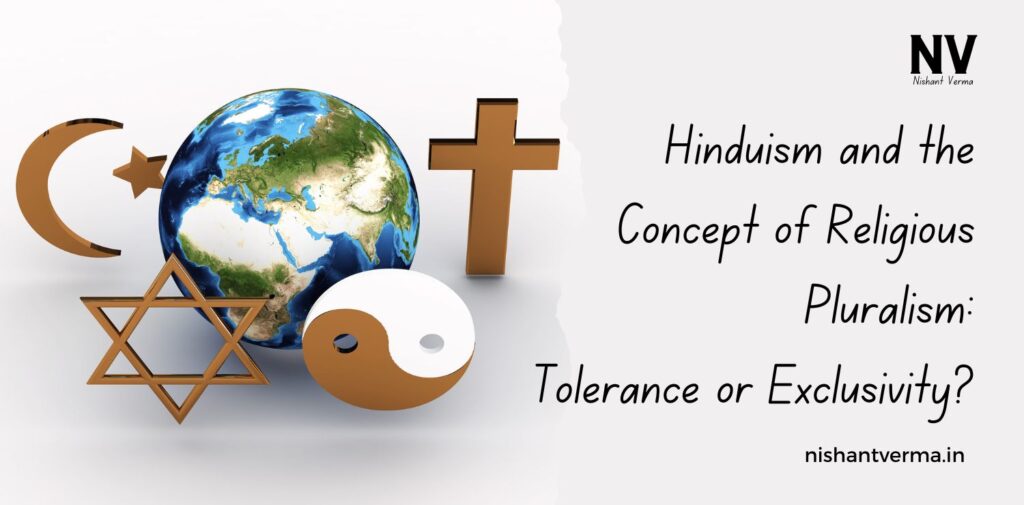Hinduism, one of the oldest religions in the world, has long been a subject of deep reflection and discussion. It is a religion rich in diversity, with various beliefs, practices, and deities, often forming an essential part of the lives of millions of people around the globe. One of the central concepts that often come up in discussions about Hinduism is religious pluralism—the idea that multiple religions can coexist and each can offer a valid path to truth and spiritual fulfillment. But does Hinduism truly embrace religious pluralism in this sense? Is it a religion of tolerance or one of exclusivity?
What is Religious Pluralism?
Religious pluralism refers to the acceptance of the idea that different religions may offer legitimate paths to spiritual truth and salvation. It advocates for the idea that no one religion holds a monopoly on truth. In a pluralistic world, the belief is that people from different religious traditions can coexist peacefully, respecting each other’s differences, without feeling the need to convert or impose their views on others.
On the other hand, religious exclusivism is the belief that only one particular religion is true, and that salvation or spiritual liberation can only be attained through following the teachings of that religion. According to this perspective, all other religions are seen as incomplete or wrong.
When we talk about Hinduism’s relationship with religious pluralism, it’s important to first understand its basic teachings and approach to spirituality.

The Core Teachings of Hinduism
Hinduism is not a monolithic religion. Unlike many other faiths, it doesn’t have a single founder, a single holy book, or a universally accepted set of doctrines. Instead, it is a diverse tradition with a variety of schools of thought, philosophies, and practices. Some of the core concepts in Hinduism include:
- Brahman: The ultimate reality or supreme cosmic power, which is formless and beyond human comprehension. Everything in the universe is believed to be a manifestation of Brahman.
- Atman: The individual soul, which is considered a part of Brahman. The ultimate goal of human life is to realize the oneness of Atman (the self) with Brahman.
- Dharma: The ethical duty or moral law that governs an individual’s life. It is based on one’s role in society, age, and personal nature.
- Karma: The law of cause and effect, which teaches that every action has consequences, either good or bad, in this life or the next.
- Moksha: The liberation from the cycle of birth, death, and rebirth (samsara), which is the ultimate goal of life in Hinduism.
These concepts form the foundation of Hindu belief and practice. Given this diversity, Hinduism doesn’t strictly adhere to a singular path or method to reach spiritual fulfillment. Instead, it allows for a variety of approaches to divine and spiritual liberation.

Hinduism and Tolerance
Hinduism has often been regarded as a religion of tolerance. The very nature of its vast diversity—ranging from polytheism to monism, from pantheism to atheism—means that it acknowledges a variety of spiritual practices. The pluralistic nature of Hinduism allows for the coexistence of multiple deities, philosophical schools, and paths to spiritual growth.
This inclusiveness can be seen in many texts and traditions. For example, the Rigveda, one of the oldest texts in Hinduism, famously states:
“Ekam sat vipra bahudha vadanti” – “Truth is one; the wise call it by many names.”
This verse highlights the Hindu understanding that while there is a single ultimate truth (Brahman), it can be approached through different names, forms, and expressions. Whether one worships Vishnu, Shiva, Durga, or any other deity, the belief is that all these deities are expressions of the one divine reality. This acceptance of diverse paths to spiritual truth is one of the key pillars of Hindu tolerance.
In the epics of the Mahabharata and the Ramayana, we also find instances where various religious and philosophical ideas are respected. The Bhagavad Gita, a central text in Hindu philosophy, presents a dialogue between Lord Krishna and Arjuna. In this dialogue, Krishna encourages Arjuna to follow his own dharma (duty), even as he presents a variety of paths to liberation, including devotion (bhakti), knowledge (jnana), and selfless action (karma yoga). This flexibility suggests that there is no single “right” way to reach the ultimate goal of moksha—each individual can choose the path that best suits their nature and disposition.
Hinduism’s Exclusivity: The Other Side of the Coin
While Hinduism is often seen as a religion of tolerance, there are also aspects of Hinduism that lean towards exclusivity. This can be traced back to some of the more ancient and orthodox teachings within the tradition. For instance, the Upanishads, which are considered the philosophical backbone of Hinduism, teach that the realization of the ultimate reality (Brahman) is a rare and difficult process. The path to moksha, according to some interpretations, can only be achieved through intense meditation, philosophical study, and ethical living. This may create an exclusivist atmosphere where only certain individuals—those who are sufficiently devoted and knowledgeable—can attain liberation.
Additionally, there are specific sects within Hinduism that claim their path to salvation is superior to others. For example, the followers of Bhakti (devotional worship) to particular deities such as Vishnu or Shiva may argue that their way is the only true way to reach moksha. Some interpretations of Advaita Vedanta, a major philosophical school of Hinduism, teach that the realization of the oneness of Atman and Brahman is the ultimate truth, and that all other ways of worship or philosophical teachings are inferior or incomplete.
Hindu exclusivism is also seen in the caste system, which has often been justified as part of divine order, restricting the ability of certain individuals to pursue spiritual knowledge or liberation. Although the caste system has been criticized and reformed in modern times, its historical role in shaping exclusive religious practices cannot be ignored.
Moreover, some Hindu texts, particularly those associated with certain sectarian groups, emphasize the importance of adhering strictly to the teachings and practices of a particular guru or spiritual leader. These teachings can sometimes create a sense of exclusivity, where followers believe that only by following this path will they attain salvation.

Complex Relationship: Tolerance and Exclusivity in Hinduism
So, is Hinduism a religion of tolerance, or does it exhibit exclusivist tendencies? The answer is not straightforward.
Hinduism, in its essence, is a religion that allows for great diversity in terms of beliefs, practices, and paths to spiritual growth. It teaches that truth can be approached in many ways, and that no single religion has a monopoly on the ultimate truth. However, certain schools of thought, sects, and historical practices within Hinduism can also lean towards exclusivity, asserting that their particular way of worship or philosophical interpretation is the most valid or superior.
This dual nature of Hinduism—both tolerant and exclusive—reflects its complex and multifaceted character. The diversity within Hinduism is both a strength and a challenge. It allows for a broad range of spiritual experiences, but it can also lead to division and conflict among different groups who claim that their path is the one true way.
Conclusion: A Religion of Tolerance or Exclusivity?
In conclusion, Hinduism is fundamentally a religion that embraces a wide range of spiritual paths. Its core teachings on Brahman, Atman, and moksha suggest a profound openness to diverse approaches to the divine. However, at the same time, there are elements within Hinduism that promote exclusivity, particularly in relation to sectarian beliefs, caste systems, and philosophical schools.
This combination of tolerance and exclusivity makes Hinduism unique. It allows for a multiplicity of religious expressions, while also providing room for individuals or sects to assert their particular path to liberation.
Now, what do you think? Is Hinduism a religion of tolerance or exclusivity? Feel free to share your thoughts in the comments below!




